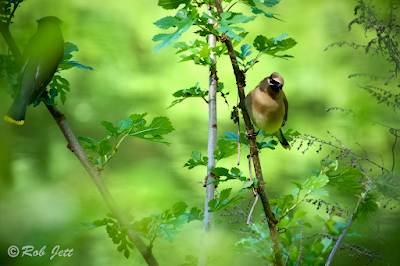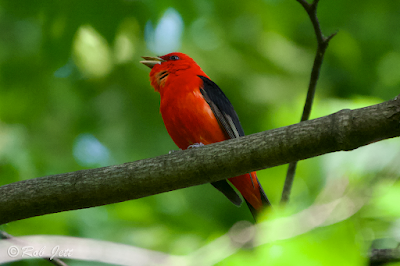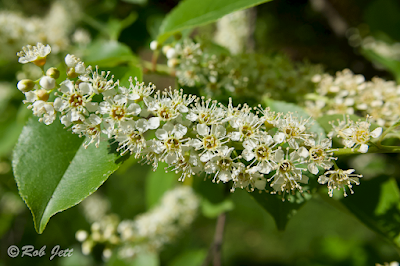One of the most notable changes in the bird status is the sudden uptick in Cedar Waxwings. These relatively late breeders were seen in fairly large flocks all last week. In addition to the waxwings, goldfinches are now breeding around the cemetery. At least three male Brown Thrashers are singing from high perches, either looking for a mate or, having found one, are claiming their territory.
 |
| Cedar Waxwings |
 |
| American Goldfinch |
 |
| Brown Thrasher |
One scarce sighting was of a Hairy Woodpecker. A larger cousin of the Downy Woodpecker it is more common in the forested sections of adjacent Prospect Park. This individual seemed to be excavating a nest cavity. Hope it is successful.
 |
| Hairy Woodpecker |
Swainson's Thrushes began moving through the area and I expect that the similar Gray-cheeked Thrush will be arriving shortly. Scarlet Tanagers increased in numbers with a single Summer Tanager gracing us with its rare presence.
 |
| Swainson's Thrush |
 |
| Scarlet Tanager |
We haven't seen much of a diversity of flycatchers, with the empidonax family nearly MIA. There was a single Alder Flycatcher on the ridge adjacent to Sylvan Water. Eastern Wood-Pewees were present in fairly good numbers.
 |
| Eastern Wood-Pewee |
Warbler abundance and diversity started waning by the end of last week. The arrival of Blackpoll Warblers signaled the historical winding down of the songbird migration...and many birder's sadness.
 |
| Blackpoll Warbler |
Here's a selection of the trees that were flowering last week.
 |
| Pignut Hickory |
 |
| Black Locust |
 |
| Black Cherry |
 |
| Fringetree |
 |
| Tuliptree |
There were lots of wildflowers blooming and here are a few that caught my eye. Not all are native species, but I won't hold it against them.
 |
| Star-of-Bethlehem |
 |
| Common Fleabane |
 |
| Jacob's Ladder (Polemonium reptans) |
 |
| Red Clover |
 |
| Eastern Red Columbine |
The first day of summer is only a month away, so get out and enjoy spring while you still can.
No comments:
Post a Comment